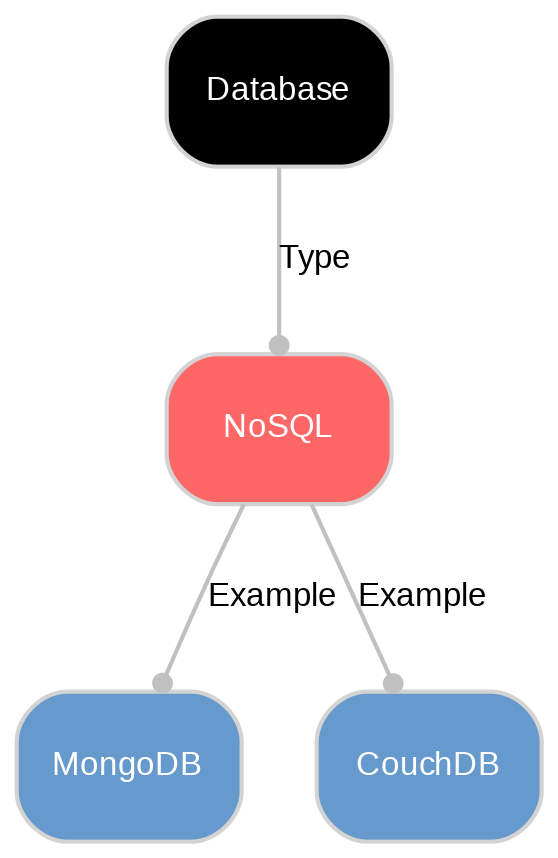NoSQL definition
NoSQL databases provide scalable, flexible solutions for managing large, unstructured data sets, offering an alternative to traditional relational databases.
What is NoSQL?
NoSQL, originally meaning "non-SQL" or "non-relational," is a type of database architecture that stores data differently than traditional relational databases. Instead of using tables, NoSQL databases use various types such as document, key-value, wide-column and graph. These databases were designed to handle large volumes of unstructured and semi-structured data, providing flexibility to adapt to changing data structures.
NoSQL databases are highly advantageous when it comes to scalability and performance for managing large datasets. They offer flexible schemas which makes them suitable for real-time analytics, content management systems and IoT applications. A common misconception about NoSQL is the lack of ability to store relationship data or support ACID transactions; however, different types have unique features that cater specific industry needs.
The most popular among these types is MongoDB which provides an easy way to manage and visualize data through its feature called MongoDB Atlas. Overall, understanding NoSQL databases allows developers in various industries to harness their benefits such as flexible data models, horizontal scaling and fast queries.
NoSQL vs SQL: understanding the differences
The choice between a relational (SQL) or non-relational (NoSQL) database is crucial for optimal data management. While SQL databases use structured query language and predefined schemas for organized data, NoSQL databases offer flexibility for managing unstructured or dynamic data. In terms of scalability, SQL databases scale vertically by adding more resources to a single server. On the other hand, NoSQL systems scale horizontally by adding more nodes, making them suitable for handling large datasets.

NoSQL systems are preferred due to their ease of storing and accessing data which proves beneficial in applications with extensive, complex datasets. However, when it comes to transaction management and complex queries, SQL tends to be superior due to its fixed schemas.
The decision between using SQL or NoSQL largely depends on project needs and specific requirements. For instance, popular choices include MySQL and Oracle for SQL databases while MongoDB and Cassandra are commonly used in the realm of NoSQL.
Advantages of using NoSQL databases
The primary advantages of NoSQL databases lie in their scalability, performance, and flexibility. They offer a more efficient way to store and manage vast amounts of data, particularly when dealing with unstructured or semi-structured data sets. This makes them an ideal choice for modern applications that demand high availability and fast queries.
NoSQL databases also provide a more flexible approach to data modeling due to their schema-less nature. This allows developers to easily adapt to new forms of data without having significant impact on the existing system. Additionally, NoSQL's simple programming model makes it very developer-friendly.
A final advantage comes in the form of a strong developer community and automatic scaling capabilities which can expand or contract based on the needs of your application - ensuring optimal resource utilization at all times.
Exploring different types of NoSQL databases
The versatility of NoSQL databases lies in their various types, each designed to cater for specific data needs. These include key-value pair databases, which use unique keys to retrieve stored data pairs, offering high performance and simplicity.
Document-oriented databases, like MongoDB, store data in documents such as JSON or XML rather than tables. This non-tabular structure enhances ease of integration with applications and flexibility in handling mixed-type data.
Wide-column stores, on the other hand, store data in columns instead of rows for efficient analytics processing. Lastly, graph-based databases focus on relationships between datasets making them ideal for complex network structures.
All these types are optimized for large-scale applications requiring low latency and flexible data models while prioritizing different factors such as consistency, durability or query language richness depending on specific use cases.
Explore Sanity Today
With NoSQL under your belt, it's time to see what Sanity can do for you. Explore our features and tools to take your content to the next level.
Last updated: